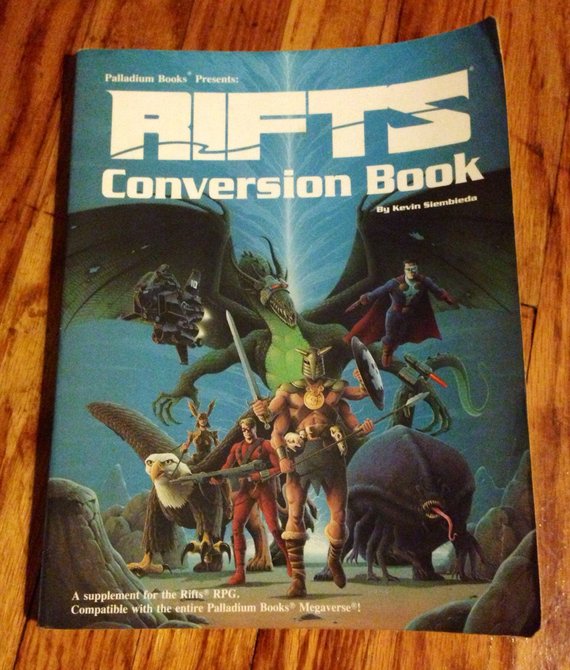|
If you’ve ever been part of a long-running game, you’re no doubt familiar with what some folks call supplement fatigue. This is a condition that happens when the game you’re playing has a great deal of additional books beyond the core, and you start to feel overwhelmed trying to take it all in. Even if you’ve been with that game since the very beginning, constantly reading new books and trying to keep your mental software updated feels exhausting. This is around the time people start talking about “bloat” in regards to a game. Because it used to be streamlined, easy-to-play, and no problem to run. But now… well, now it takes an entire library shelf just to make one character. If you’re one of those players (or storytellers) who gets bent out of shape over a game being “bloated” then you’ll be glad to know this problem doesn’t really exist. It’s all in your head. I talked about this back in There’s No Such Thing As Bloat in RPGs, and Here’s Why, but some of these points need to be reiterated. Points like... 1) One Player’s Feature is Another Player’s Flaw Think of the mechanic you hate most in a game. Maybe it’s your least favorite race, that vampire clan you can’t stand, or that one rule that you just wish would be deleted. I guarantee you that, for another player, that is one of the things they love about the game. If you’re honest with yourself, I bet there are at least a few supplements that you think are good, or which represented a step in the right direction for the game as a whole. But those supplements you like will be seen as unnecessary bloat by other players. So if we can’t even agree on a definition about what bloat really is, then chances are it may not actually exist at all. 2) Finding Things Isn’t Nearly As Hard As You May Pretend It Is Another metric some people use for accusing a game of being bloated is that it becomes impossible to find the rules you need in a timely fashion. You can’t remember if this merit was in a clan book, or in that one Middle Ages sourcebook, or if it was somewhere in the base book’s optional rules section, and everyone’s looking at you, waiting for a ruling, or for you to declare your action. In ye olden days, this could be a legitimate problem, requiring several folks at the table to have an encyclopedic knowledge of the game’s rules and errata. However, technology has shouldered a lot of this workload for us. Now all you need to do is type in the name of a mechanic, or ask a database for the rule, and pop you’re there in seconds, and you can read the text aloud for your table. So while there is more stuff, it isn’t as difficult to parse through as a lot of folks would have you believe. 3) You Don’t Have To Use It While there might be some crazed completists out there, it’s important to remember that supplement books are just that… supplements. If you want to include the half-dozen Ultimate books in your Pathfinder game, or all the special rules and lore in the different clan books for your Vampire campaign, you totally can. That’s what they’re written for, after all. But you are under no obligation to do that. I’ll repeat that, because it bears repeating. You do not have to buy supplementary books, you don’t have to read them, and if someone at your table actually has one, you’re under no obligation to allow them to use that book in your game. If you just want to stick to the basic books with no additions, that’s your call. If you want to allow the first two or three supplements, but nothing else, that’s cool too. And if you want to allow anything and everything at your table, that’s your choice. It’s all there for you to pick what you want from. And it seems like a lot of folks forget that. But Game Publishers Just Want My Money! I’m going to say this for all the folks in the back: Every business out there that creates a product you want is out for your money. The authors you read? Money. The video games you buy? Money. Your favorite YouTubers? Well, they’re trying the best they can to get money. These companies don’t put these products out just for the love of the game (most of the time, anyway); they’ve got bills to pay. And if there’s a market of folks who want more content for a game, then rest assured publishers are going to keep putting out more stuff as long as people keep buying it. That’s why we’ve got something like 500 The Fast and The Furious films. And just like with gaming supplements, you don’t have to go see them if you don’t want to. Nor are you required to like everything in a series if you’re just a fan of one or two extra installments. Keep what you like, and ignore the rest if it makes your games better for you. For more from Neal F. Litherland, check out his Gamers page, as well as his blog Improved Initiative! You can also find books like the sword and sorcery novel Crier’s Knife on his Amazon Author Page. Picture Reference: https://www.etsy.com/au/listing/183531915/rifts-conversion-book-rpg-vintageantique
Notorious GMD
31/5/2019 12:30:11 pm
Your points seem to be good, but I disagree with your conclusion because you've failed to address the key issue with "bloat". As a game adds new options, it becomes increasingly difficult to GM that game, due to the increasing scope of possible build permutations.
Reply
Leave a Reply. |
All blog materials created and developed by the staff here at High Level Games Archives
April 2023
Categories
All
|
Proudly powered by Weebly




 RSS Feed
RSS Feed